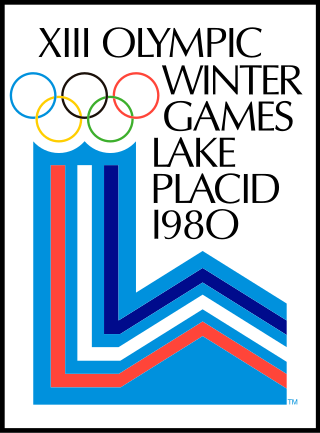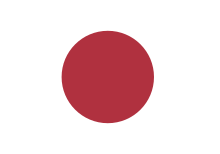
The Winter Olympic Games, also known as the Winter Olympics, is a major international multi-sport event held once every four years for sports practiced on snow and ice. The first Winter Olympic Games, the 1924 Winter Olympics, were held in Chamonix, France. The modern Olympic Games were inspired by the ancient Olympic Games, which were held in Olympia, Greece, from 776 BCE to 394 CE. The Baron Pierre de Coubertin of France founded the International Olympic Committee (IOC) 1,500 years later in 1894, leading to the first modern Summer Olympic Games in Athens, Greece in 1896. The IOC is the governing body of the Olympic Movement, with the Olympic Charter defining its structure and authority. The original five Winter Olympic Sports were bobsleigh, curling, ice hockey, Nordic skiing, and skating. The Games were held every four years from 1924 to 1936, interrupted in 1940 and 1944 by World War II, and resumed in 1948. Until 1992, the Summer Olympic Games and the Winter Olympic Games were held in the same year. A decision to change this was made in 1986, when during the 91st International Olympic Committee session, IOC members decided to alternate the Summer Olympic Games and the Winter Olympic Games on separate four-year cycles in even-numbered years. Also, at that same congress it was decided that 1992 Winter Olympics would be the last to be held in the same year as the Summer Games and that to change the rotation, the games that would be held in 1996 would be brought forward by two years, being scheduled to 1994. After those games, the next were to be held in 1998 when the four-year Olympic Cycle resumed.

The 1924 Winter Olympics, officially known as the I Olympic Winter Games and commonly known as Chamonix 1924, were a winter multi-sport event which was held in 1924 in Chamonix, France. Originally held in association with the 1924 Summer Olympics, the sports competitions were held at the foot of Mont Blanc in Chamonix, and Haute-Savoie, France between 25 January and 5 February 1924. The Games were organized by the French Olympic Committee, and were originally reckoned as the "International Winter Sports Week". With the success of the event, it was retroactively designated by the International Olympic Committee (IOC) as "the first Olympic Winter Games".

The 1960 Summer Olympics, officially known as the Games of the XVII Olympiad and commonly known as Rome 1960, were an international multi-sport event held from 25 August to 11 September 1960 in Rome, Italy. Rome had previously been awarded the administration of the 1908 Summer Olympics, but following the eruption of Mount Vesuvius in 1906, the city had no choice but to decline and pass the honour to London. The Soviet Union won the most gold and overall medals at the 1960 Games.

The 1980 Winter Olympics, officially the XIII Olympic Winter Games and also known as Lake Placid 1980, were an international multi-sport event held from February 13 to 24, 1980, in Lake Placid, New York, United States.

The 1924 Winter Olympics, officially known as the I Olympic Winter Games, and known at the time as Semaine Internationale des Sports d'Hiver, was a winter multi-sport event held in Chamonix, France, from 25 January to 5 February 1924. Norway topped the table, collecting seventeen medals in total, including four gold, three of which were won by Thorleif Haug in the Nordic combined and cross-country skiing events. Norway also achieved two podium sweeps, winning all three medals in both the 50 km cross-country skiing and the Nordic combined. This remained a record at the Winter Olympics until 2014.

The FISU World University Games, formerly the Universiade, is an international multi-sport event, organized for university athletes by the International University Sports Federation (FISU). The former name is a portmanteau of the words "University" and "Olympiad".
The 1993 Winter Universiade, the XVI Winter Universiade, took place in Zakopane, Poland. Japan led the medal standings with 6 gold, 5 silver and 4 bronze medals.
The 1960 Winter Universiade, the I Winter Universiade, took place in Chamonix, France.

Bobsleigh is an event in the Winter Olympic Games where a two- or four-person team drives a specially designed sled down an ice track, with the winning team completing the route with the fastest time. The event has been featured since the first Winter Games in 1924 in Chamonix, France, with the exception of the 1960 games in Squaw Valley when the organizing committee decided not to build a track in order to reduce expenses. Other than that exception, the four-man competition has been competed at every game. The two-man event was introduced at the 1932 Lake Placid games and a two-woman event was first contested at the 2002 Salt Lake City Olympics.

Figure skating is a part of the FISU World University Games. It was first held as part of the Universiade in 1960. Medals may be awarded in men's singles, ladies' singles, pair skating, ice dancing, and synchronized skating.
Charles Bozon Jr. was an alpine ski racer and world champion from France.
The 2013 Winter Universiade, the XXVI Winter Universiade, was a winter multi-sport event which took place in Trentino, Italy between 11 and 21 December 2013.
Günter Anderl was an Austrian figure skater who competed in men's singles. He was the 1968 Winter Universiade bronze medalist, 1969 Nebelhorn Trophy champion, and a three-time Austrian national champion (1969–1971). He competed at two Winter Olympics, in 1968 and 1972.

Winter Universiade 2017, the XXVIII Winter Universiade, was a multi-sport winter event which took place in Almaty, Kazakhstan from 29 January to 8 February 2017. On 29 November 2011, FISU announced that Winter Universiade 2017 would be hosted in Almaty.

An all-time Universiade medal table from 1959 Summer Universiade to 2021 Summer Universiade and 1960 Winter Universiade to 2023 Winter Universiade, is tabulated below. The table is the consequence of the sum of the medal tables of the various editions of the Summer Universiade and the Winter Universiade. The results code are attributed to the IOC country code. NUSF stands for National University Sports Federation

The 2019 Winter Universiade, the XXIX Winter Universiade, was a multi-sport event for student and youth athletes which took place from 2 to 12 March 2019 in the Russian city of Krasnoyarsk. The 2019 Winter Universiade was the third Universiade hosted in Russia and second as an independent country. The first Universiade, when Russia was a Soviet Republic, was hosted by Moscow in 1973, whereas Kazan, capital of the Republic of Tatarstan, hosted the 2013 Summer Universiade. It is the first Winter Universiade hosted by Russia, and the second time that the event was held in a former USSR republic.

The Lake Placid 2023 FISU World University Games, commonly known as Lake Placid 2023, was a collegiate multi-sport winter sports held between January 12 to January 22, 2023 and had Lake Placid, New York, United States, as main host city. Alongside Lake Placid, events were also hosted by neighbouring cities of Wilmington, Saranac Lake, Potsdam and North Creek also located at the New York state. The event is also known as the 31st Winter Universiade as administered by the International University Sports Federation (FISU).
The 2018–19 Japan Figure Skating Championships were held on December 20–24, 2018 in Osaka. It was the 87th edition of the event. Medals were awarded in the disciplines of men's singles, ladies' singles, pair skating, and ice dancing.

Japan has participated in all editions of the Summer and Winter World University Games held since the first edition in 1959 and 1960. The nation is ranked 5th in the all-time medal table behind Russia, China, United States, and Soviet Union. Japan has won 1,202 medals at the Summer World University Games and are in the fifth place on the all-time Summer World University medal table. In the winter games, they have won 335 medals at the Winter Universiade and are in the third place on the all-time Winter Universiade medal table.












